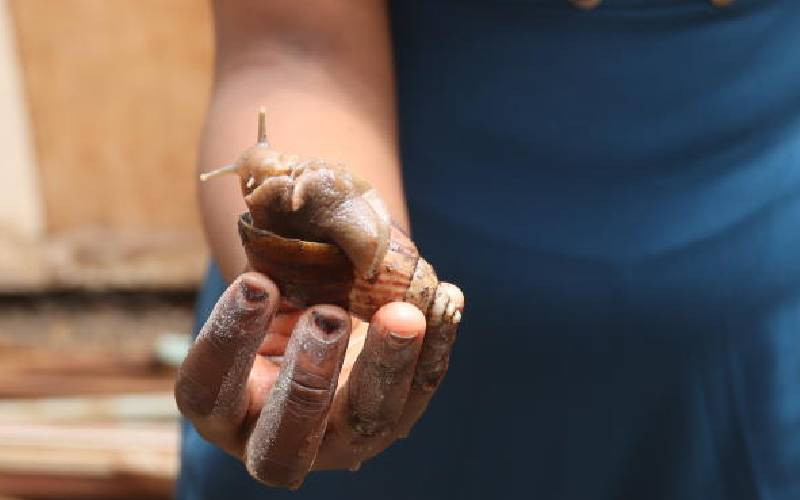
Snail slime will soon be administered as a cough syrup as Kenyan scientists race against time to develop the medication.
Scientists at Jomo Kenyatta University of Agriculture and Technology (JKUAT) have embarked on the process of developing a new syrup from readily available snails in the country.
Besides coughs, the syrup also provides relief from heartburn, neutralising the pain and burning sensation.
Facts First
This story continues on The Standard INSiDER. Subscribe now for unfiltered journalism that holds power to account.
Already have an account? Login
 The Standard Group Plc is a multi-media organization with investments in media
platforms spanning newspaper print
operations, television, radio broadcasting, digital and online services. The
Standard Group is recognized as a
leading multi-media house in Kenya with a key influence in matters of national
and international interest.
The Standard Group Plc is a multi-media organization with investments in media
platforms spanning newspaper print
operations, television, radio broadcasting, digital and online services. The
Standard Group is recognized as a
leading multi-media house in Kenya with a key influence in matters of national
and international interest.











